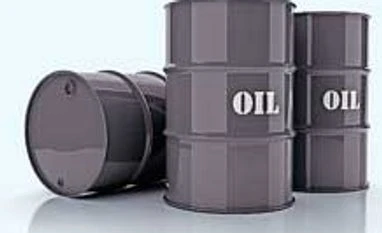The truce arrived at between Tehran and six world powers over the former’s nuclear programme is set to end the long-standing payment crisis for Indian oil companies, which are hoping to soon restart paying for crude oil imported from Iran in dollars or euros.
According to experts, the development will soon bring down global crude oil prices back to around $100 a barrel. However, on the other hand, it will spell doom for Petroleum Minister M Veerappa Moily’s ambitious plan to save $8.4 billion worth of foreign exchange outgo by paying for 100 per cent of oil imports from Iran in rupee terms.
Also, the agreement will do away with the need to have a Rs 2,000-crore Indian Energy Insurance Pool for covering refineries’ risk in importing crude oil from that country.
“The impact of the deal was already visible, as the price of Brent crude cooled around three per cent to $108.13 a barrel on Monday. I expect it to come down by another five per cent; it may even touch $100 a barrel,” said a Mumbai-based oil industry analyst, asking not to be named.
Earlier, on Sunday, Iran and six global majors had struck a deal that allowed the West Asian country a limited relief on sanctions in return for curbs on its nuclear programme. At 11:45 pm (IST) on Monday, Brent crude was ruling at $110.64 a barrel. The fall in the price — and a likely further easing — is going to be a big relief for India, as every one dollar decrease in crude oil prices brings down the government’s oil subsidy bill by Rs 4,000 crore.
According to experts, the development will soon bring down global crude oil prices back to around $100 a barrel. However, on the other hand, it will spell doom for Petroleum Minister M Veerappa Moily’s ambitious plan to save $8.4 billion worth of foreign exchange outgo by paying for 100 per cent of oil imports from Iran in rupee terms.
Also, the agreement will do away with the need to have a Rs 2,000-crore Indian Energy Insurance Pool for covering refineries’ risk in importing crude oil from that country.
| DEAL AT A GLANCE |
|
“The impact of the deal was already visible, as the price of Brent crude cooled around three per cent to $108.13 a barrel on Monday. I expect it to come down by another five per cent; it may even touch $100 a barrel,” said a Mumbai-based oil industry analyst, asking not to be named.
Earlier, on Sunday, Iran and six global majors had struck a deal that allowed the West Asian country a limited relief on sanctions in return for curbs on its nuclear programme. At 11:45 pm (IST) on Monday, Brent crude was ruling at $110.64 a barrel. The fall in the price — and a likely further easing — is going to be a big relief for India, as every one dollar decrease in crude oil prices brings down the government’s oil subsidy bill by Rs 4,000 crore.
Mangalore Refinery & Petrochemicals Ltd (MRPL) Managing Director P P Upadhyay said: “This may not increase the imports from that country but will ease out payment problems... we may be able to go back to 55 per cent euro/dollar payment and the remaining 45 per cent in rupee payment through UCO Bank. Moreover, for insurers, reinsurance problems may also be sorted out.” MRPL and Essar Oil plan to import 4 million tonnes each from Iran this year, while Hindustan Petroleum Corp Ltd may import 0.8 mt. Since July 2011, 55 per cent payments by India have been made in euros through Turkish Halkbank.
Experts believe this would be a positive for India. If crude oil prices come down, its impact on the subsidy burden will be much more than the need to save on foreign exchange through 100 per cent rupee payments. “The prices are going to come down because, more than the production quantity, the Iran development will have a sentimental impact on crude oil prices, with oil supply increasing. A correction in oil prices will naturally bring down the import bill,” said Debashish Mishra, senior director, Deloitte India.
India imported 18.5 mt crude from Iran in 2010-11. This came down to 17.4 mt in 2011-12 and 14 mt in 2012-13. Given the US and EU sanctions, the two countries were planning to have a mechanism for 100 per cent rupee transactions. “As far as economic engagement with Iran is concerned, it has been there, it has huge potential to grow and we will be seriously taking all the measures that can improve our trade,” Commerce & Industry Minister Anand Sharma said on Monday. The truce would also revive hopes for the much-awaited Iran-Pakistan-India pipeline.
Earlier, Indian insurers depended on European companies to re-insure their risks. However, with the sanctions on trade with Iran, these firms had refused to re-insure, necessitating an insurance pool.
)